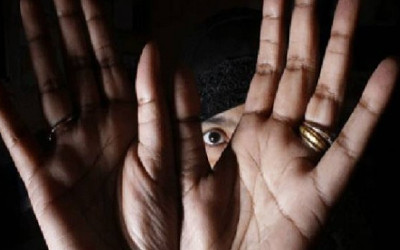AKIPRESS.COM -  In May, when the Mongolian parliament decided to criminalize domestic violence for the first time in the country’s history, women and NGO’s were applauding the decision, said The UB Post's Elise Honningdalsnes.
In May, when the Mongolian parliament decided to criminalize domestic violence for the first time in the country’s history, women and NGO’s were applauding the decision, said The UB Post's Elise Honningdalsnes.
The revised edition of the domestic violence law along with amendments to the Criminal Code was supposed to go into effect on September 1, and domestic violence would no longer be viewed as a “domestic matter”.
The government’s recent decision to delay the implementation of the laws faced strong resistance by social groups seeking to protect thousands of victims of domestic violence. As a result of social opposition, the government decided to revise the laws and the domestic violence law is expected to be passed within the next two months.
The new laws were supposed to punish domestic violence resulting in serious injury or death with imprisonment and “light” causes of violence would be punished by a restraining order. Victims and witnesses of violence would also be protected.
To create the necessary infrastructure to support the law to combat domestic violence, six laws were amended, including the Criminal Code, law on law enforcement, law on administrative violations, law on criminal procedure, law on marshals service, and the law on victim and witness protection.
The country’s first ever domestic violence law was passed in 2004. The National Center Against Violence (NCAV) argues that this law was not sufficient as it had many gaps and the law alone was unable to protect the victims and the witnesses of violence. The NCAV has worked very hard to improve the new laws and that is why they are opposing the government’s recent decision to revise the laws.
The government aims to implement the domestic violence law alone and argues that this law alone will be sufficient to protect victims of violence. Arvintaria, the Legal Reform program coordinator at the NCAV, argues that the law alone will be even worse than the limited law from 2004.
“This law alone cannot protect the victims, all the laws must be passed and enforced together, at the same time. There is a wrong understanding among Parliament and the public in which they think that one law alone is enough to combat domestic violence,” says Arvintaria.
“The domestic violence law alone is not enough to protect the victims, but together these laws will make things better; it will be the legal system we are expecting to create,” says Arvintaria.
“We cannot hope for better improvements now when the laws will be revised, but on the other hand, we are hoping that the government won’t change the progress we have managed to make in these new laws,” she says.
Over the past six years alone, 95 women have lost their lives due to domestic violence and the number is increasing. The majority of the victims are women, but domestic violence also strikes older people, children, young people and disabled people. Far from all incidents are reported.
“Domestic violence can be seen as an iceberg. The top consists of the reported incidents, but underneath the ocean there is a much bigger, invisible mountain that no one can see, and that’s all the cases that have not been reported,” Arvintaria says.
“The numbers are increasing and the government is doing absolutely nothing to protect victims of violence,” says Arvintaria, who argues that the government is doing a terrible job facing this issue.
“The root cause for domestic violence is power inequality and imbalanced relationships between the genders,” she says. “There are many things the government can do to combat domestic violence; they can improve the laws, hold the perpetrators accountable for what they’ve done, give education on how to deal with issues without conflicts and give comprehensive training to agencies such as the police.”
The new laws were supposed to grant the police the authority to enter a home immediately if a victim’s life or health is at stake, as well as to remove children who are in danger of harm. The laws were also meant to require citizens to report child abuse and those who refrain would face fines.
In addition, the new laws would make it easier for women to obtain restraining orders. Over the past 12 years, only 54 restraining orders have been issued in Mongolia, and in reality not many of these have been followed up. Under the new laws, domestic violence would also be treated as top priority.
The NCAV was established in 1995 and has since worked hard to combat the issue of domestic violence. Victims can come to the center, where they will be provided legal and psychological aid. Today there are two shelter houses in Ulaanbaatar that women and victims of domestic violence can go to if they are in danger. One center is run by the police and the other one by the NCAV. In total there are around 60 beds in these two shelter houses, and 60 percent of the current residents are children.
As the numbers of victims of domestic violence are increasing, something needs to be done and the authorities need to work together, Arvintaria argues.
“The police or an NGO alone cannot solve the issue, we need guidelines that all agencies can follow, no one can fight the issue alone,” she says, “We have to target all the underlying factors such as alcoholism, poverty and unemployment.”
